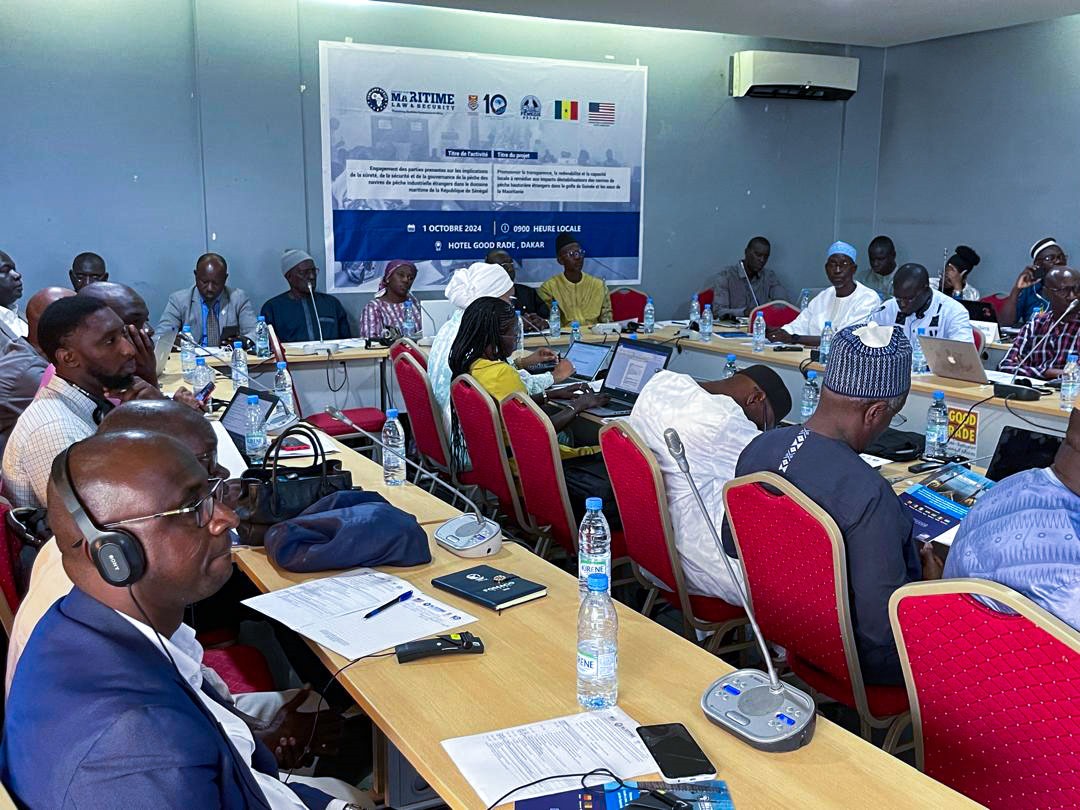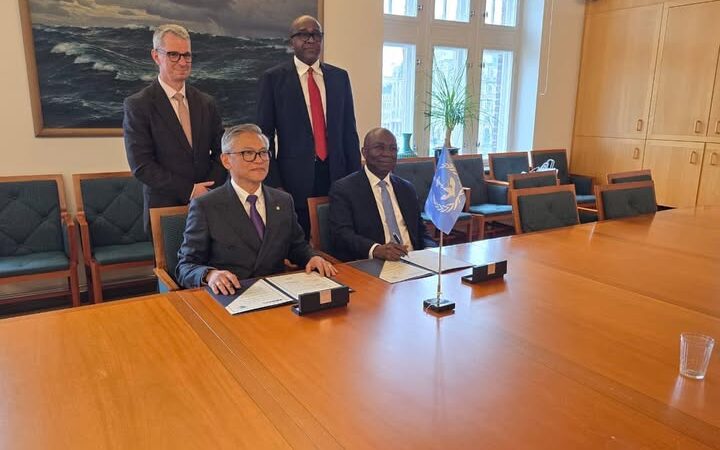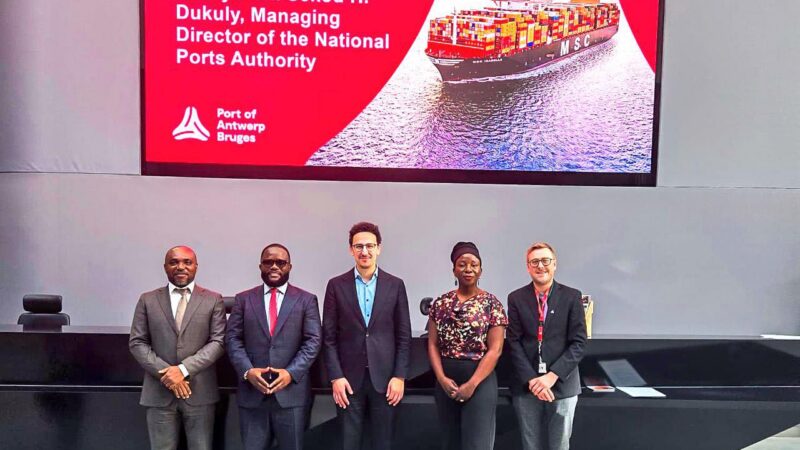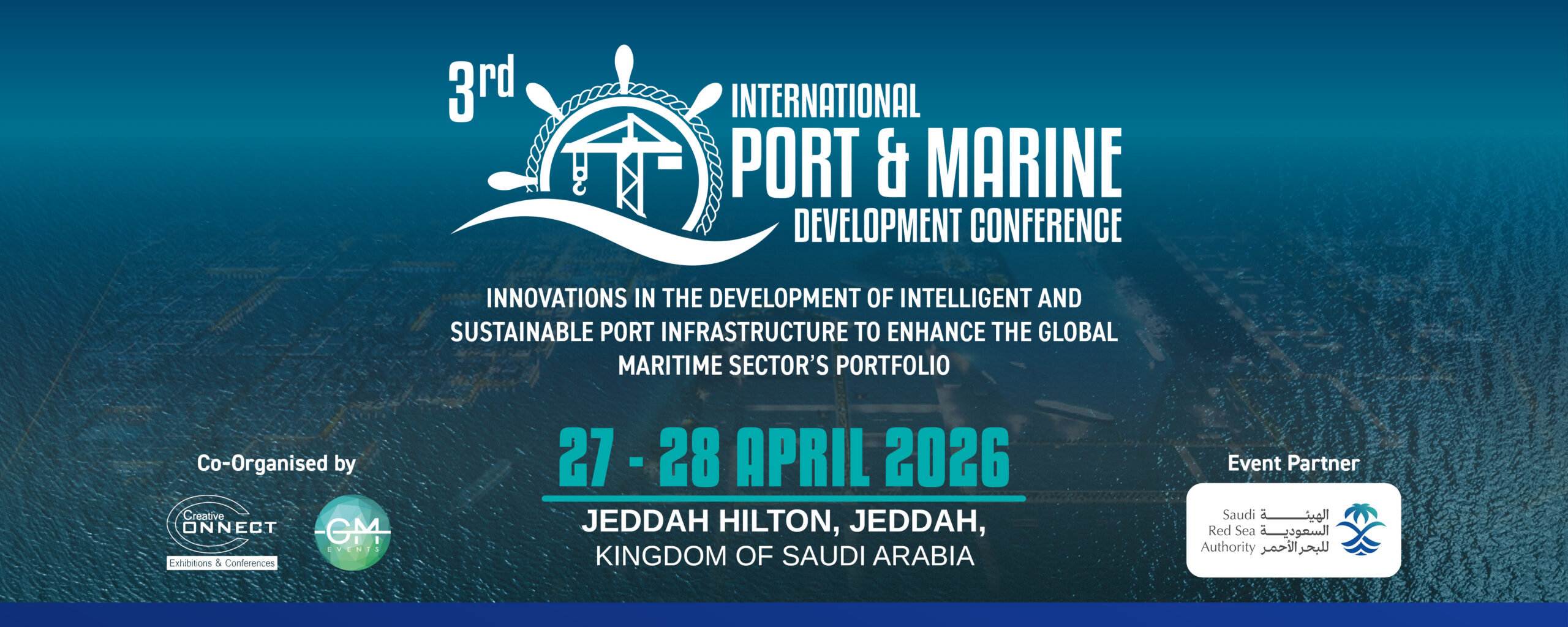Workshop on the Governance of Foreign Industrial Fishing Vessels in Senegal’s Maritime Domain
On Tuesday, October 1, 2024, a workshop was held at the Good Rade Hotel in Dakar, Senegal, under the theme “Stakeholder Engagement on Governance Implications of Foreign Industrial Fishing Vessels in the Maritime Domain of the Republic of Senegal“.
This workshop is the culmination of the project “Promoting Transparency, Accountability, and Local Capacity to Address the Destabilizing Impacts of Foreign Offshore Fishing Vessels in the Gulf of Guinea and Mauritanian Waters“, which aims to enhance transparency, promote accountability, and local capacities to address the destabilizing impacts of distant water fishing fleets and IUU fishing on food security, livelihoods, and coastal economies in West Africa.
The project is funded by the U.S. Department of State and implemented by the Centre for Maritime Law and Security Africa (CEMLAWS AFRICA) and the Center for Coastal Management (CCM) of the University of Cape Coast, in seven countries: Benin, Cameroon, Côte d’Ivoire, Ghana, Mauritania, Senegal, and Sierra Leone.
The workshop, organized in partnership with FENAGIE PECHE, brought together nearly 40 participants from various institutions, including high-level policy makers, parliamentarians, leaders of relevant fisheries management institutions, experts, and stakeholders from both artisanal and industrial fishing sectors.
Mr. Mamadou Abibou Diagne, representing the Minister of Fisheries, Maritime and Port Infrastructure of Senegal, opened the workshop by emphasizing the importance of monitoring and sustainable management of fishery resources for the Senegalese government.
Mr. Niadiar SENE, President and Co-founder of the Network of Parliamentarians for Environmental Protection in Senegal (REPES), stressed the crucial role of legislators in protecting marine resources: “Given the situation of exploitation of natural resources on the high seas, Parliaments must take on a new role in solving environmental problems, including those related to the impacts of deep-sea fishing.”
Mr. Takha Samb, administrative and financial officer of FENAGIE PECHE, expressed gratitude towards the authorities while calling for more support. He highlighted the considerable impact of illegal, unreported, and unregulated (IUU) fishing, estimating at least 150 billion CFA francs annual losses for Senegal.
Dr. Kamal-Deen Ali, Project Leader and Executive Director of CEMLAWS AFRICA, announced that the project, initially scheduled to end in September, has been extended until the end of November 2024.
It should be noted that this workshop allowed participants to:
- deliberate on the impacts of IUU fishing on West African fisheries with a focus on Senegal;
- examine the need to protect Senegal’s artisanal marine fisheries;
- discuss the performance of Monitoring, Control and Surveillance (MCS) systems across West Africa with a particular focus on the Senegalese situation;
- agree on the need to reposition the industrial sector for greater national/regional ownership and the need to strengthen the technological and financial capacities of the MCS system; and
- formulate concrete recommendations to be implemented through a draft communiqué adopted by all participants.
The workshop was enriched by the presence of Mrs Aichatou FALL from the US Embassy in Dakar, who emphasised international collaboration in the fight against IUU fishing and the promotion of sustainable fisheries management in West Africa.
Also, the participants expressed optimism about future activities and collaborations aimed at implementing the recommendations made during the workshop.







